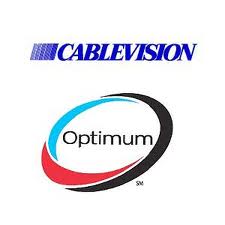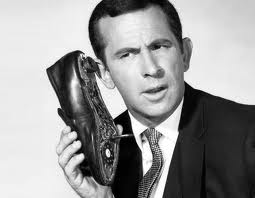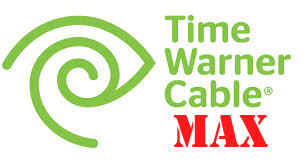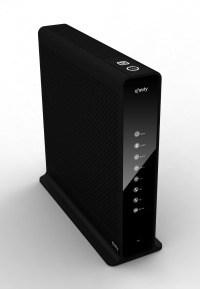
‘Disloyal Cablevision customers looking for discounts are dead to us.’
Cablevision is fed up with disloyal customers bouncing between the cable company and other providers when promotional discounts expire.
After losing 13,000 broadband, 18,000 voice, and 37,000 television customers, Cablevision CEO Jim Dolan said the company has stopped offering any further discounts to customers that received them once before.
“The customer that has been bouncing from one company to another on promotional/repetitive discounts has hit a dead-end with us,” Dolan told Wall Street analysts during a conference call.
All customers with promotions will now be tracked to prevent extensions or further discounts once the special rates expire. Dolan confirmed the ban will also extend to customer retention offers.
Customers who shop primarily on price in Cablevision’s service area have traditionally flipped between AT&T U-verse, Verizon FiOS and the cable company every few years, usually switching after a promotion expires or rates are increased. Because of fierce price competition, new customers can receive a triple play package of broadband, phone, and television service — including equipment, for less than $85 a month for at least one year. Regular prices are considerably higher.
Cablevision lost most of its departing New York and New Jersey customers to Verizon FiOS, but has been more successful fending off competition in Connecticut, where AT&T has the least capable broadband network among the three providers.
 All three companies have attempted price increases over the last few years with mixed results. Cablevision’s eight percent rate hike on broadband this year may have been too much for some customers who shopped around and found a better deal with the phone company.
All three companies have attempted price increases over the last few years with mixed results. Cablevision’s eight percent rate hike on broadband this year may have been too much for some customers who shopped around and found a better deal with the phone company.
Despite the loss in customers, Dolan remains firmly committed to more rate hikes, especially for broadband service, noting its speed and features (including an extensive Wi-Fi network) deliver enough value to sustain further price increases.
Cablevision clearly hopes competitors follow its lead and end promotional rate double-dipping as well. If they do, customers will find themselves locked in with regular pricing regardless of the provider they choose.
Some analysts are skeptical Cablevision’s hard-line will last, especially if subscriber losses mount. Cable operators have attempted to restrict promotions in the past but tend to ease them if market share suffers. Despite the third quarter customer retreat, Cablevision’s rate hikes delivered $336 million in broadband revenue during the last three months, an increase from $308 million earned the same time last year.


 Subscribe
Subscribe The taxpayer-funded Central Intelligence Agency is paying AT&T more than $10 million annually for its “voluntary help” with counter-terrorism investigations in return for open access to the company’s vast trove of calling records, including international calls placed by Americans.
The taxpayer-funded Central Intelligence Agency is paying AT&T more than $10 million annually for its “voluntary help” with counter-terrorism investigations in return for open access to the company’s vast trove of calling records, including international calls placed by Americans. By law, the CIA is specifically prohibited from collecting intelligence on the domestic activities of U.S. citizens, so the agency imposes its own safeguards on the surveillance program. AT&T provides the agency with calling times, duration of the calls, and the phone numbers of both the originating and called party. It does not divulge the contents of the calls. The CIA is granted full access to AT&T logs involving foreign to foreign calls, but if either party is in the United States, AT&T will mask certain digits of the U.S. telephone number. If more information is required, the CIA will refer the matter to the Federal Bureau of Investigation (FBI), which has jurisdiction the CIA lacks. The FBI can then subpoena AT&T directly for the missing details.
By law, the CIA is specifically prohibited from collecting intelligence on the domestic activities of U.S. citizens, so the agency imposes its own safeguards on the surveillance program. AT&T provides the agency with calling times, duration of the calls, and the phone numbers of both the originating and called party. It does not divulge the contents of the calls. The CIA is granted full access to AT&T logs involving foreign to foreign calls, but if either party is in the United States, AT&T will mask certain digits of the U.S. telephone number. If more information is required, the CIA will refer the matter to the Federal Bureau of Investigation (FBI), which has jurisdiction the CIA lacks. The FBI can then subpoena AT&T directly for the missing details. AT&T has agreed to pay an extra $3.5 million in addition to the $18.25 million already paid to settle Justice Department claims the company knowingly overbilled the government for reimbursement of fraudulent international relay calls usually made by scammers originating from countries like Nigeria.
AT&T has agreed to pay an extra $3.5 million in addition to the $18.25 million already paid to settle Justice Department claims the company knowingly overbilled the government for reimbursement of fraudulent international relay calls usually made by scammers originating from countries like Nigeria.


 Comcast is also moving forward with plans to share your in-home Wi-Fi with other customers, configuring company-supplied gateways to offer a second, open access Wi-Fi channel. Comcast currently charges customers $7 a month for the XFINITY Wireless Gateway, combining a DOCSIS 3 cable modem, a telephone eMTA, and a wireless router.
Comcast is also moving forward with plans to share your in-home Wi-Fi with other customers, configuring company-supplied gateways to offer a second, open access Wi-Fi channel. Comcast currently charges customers $7 a month for the XFINITY Wireless Gateway, combining a DOCSIS 3 cable modem, a telephone eMTA, and a wireless router.